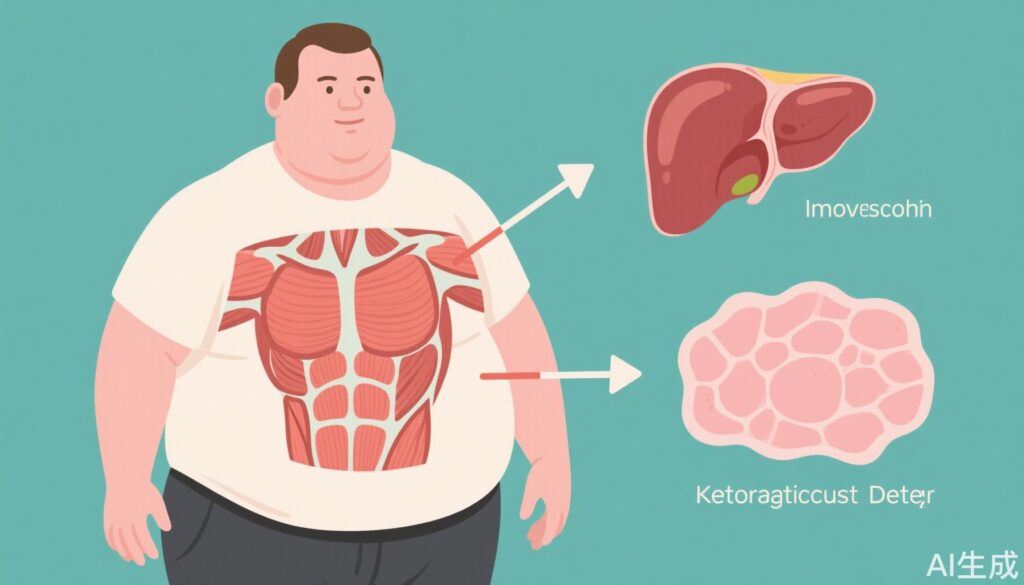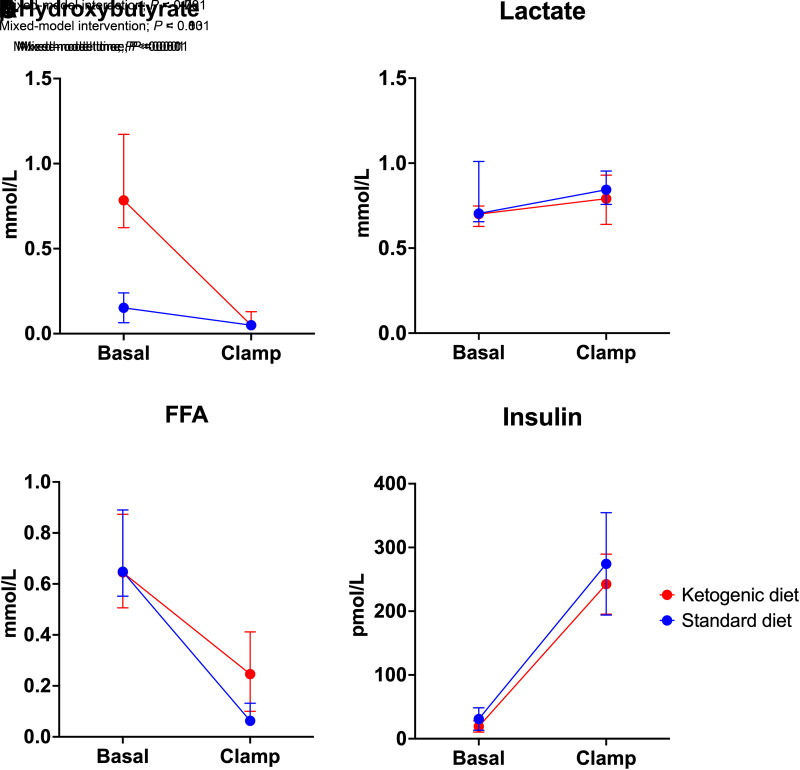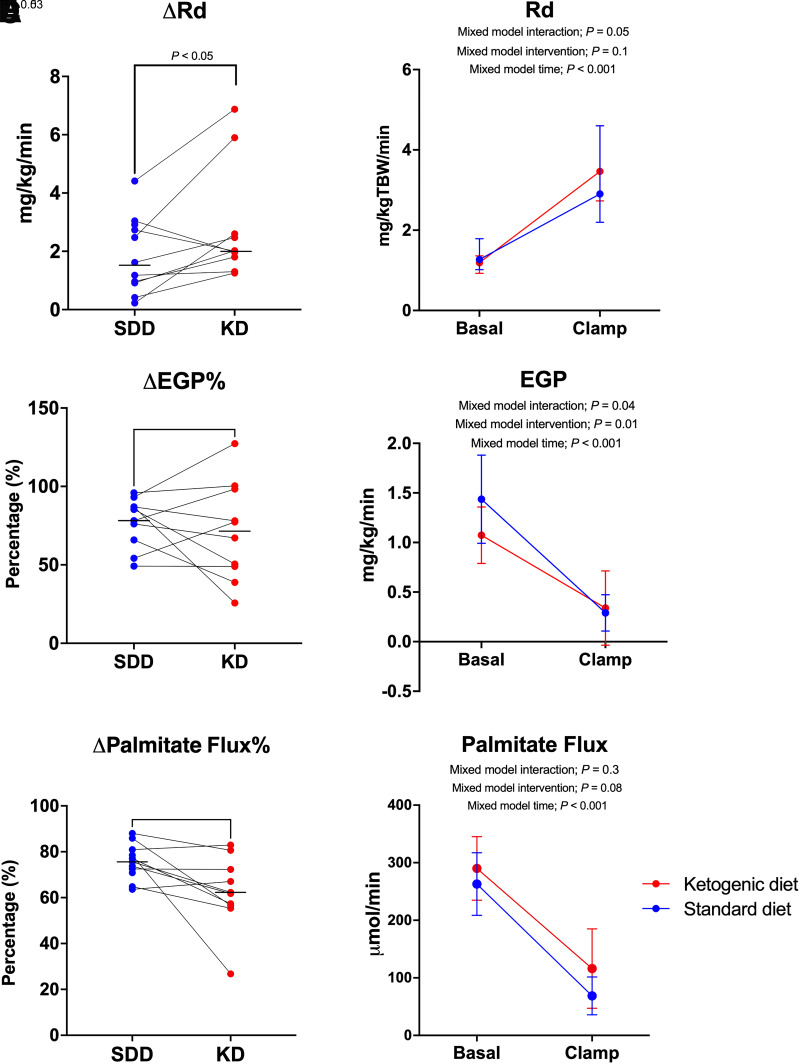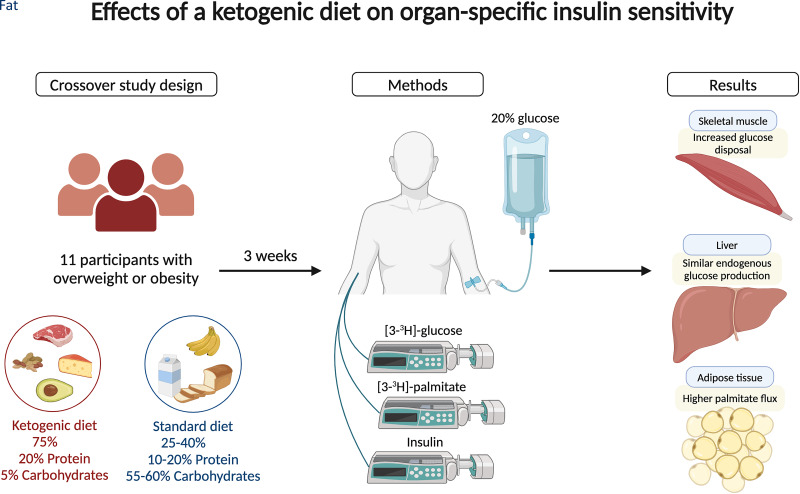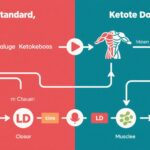Highlights
- Short-term ketogenic diet (KD) increased skeletal muscle insulin sensitivity in individuals with obesity.
- KD resulted in significant weight loss, but did not improve hepatic or adipose tissue insulin sensitivity.
- Findings suggest potential benefits of KD for metabolic health beyond weight reduction.
Study Background and Disease Burden
Obesity remains a major public health crisis, strongly associated with insulin resistance and elevated risk of type 2 diabetes mellitus (T2DM). As the prevalence of obesity continues to rise globally, so too does the burden of metabolic disorders, prompting urgent need for effective interventions. Dietary modification is a cornerstone of obesity management, and the ketogenic diet (KD)—a high-fat, very low-carbohydrate regimen—has gained attention for its rapid weight loss effects and possible improvements in glycemic control. However, the organ-specific mechanisms by which a KD modulates insulin sensitivity remain incompletely understood, especially in the context of short-term interventions relevant to clinical practice.
Study Design
This study by Luong et al. (Diabetes, 2024) utilized a randomized, controlled, crossover design involving 11 adults with obesity. Each participant underwent two 3-week dietary interventions in random order: a KD and a standard diet (control), separated by a washout period. The KD was designed to induce ketosis through marked carbohydrate restriction. The primary endpoint was skeletal muscle insulin sensitivity (IS), measured as the increment in glucose disposal rate during a hyperinsulinemic-euglycemic clamp (HEC)—the reference standard for IS assessment. Secondary endpoints included hepatic IS (quantified as suppression of endogenous glucose production, EGP) and adipose tissue IS (assessed via suppression of palmitate flux during HEC).
Key Findings
The 3-week KD led to a mean weight loss of 2.2 kg among participants, reflecting effective caloric restriction and metabolic adaptation. Critically, the KD significantly enhanced skeletal muscle IS, as evidenced by a marked increase in insulin-stimulated glucose disposal during the HEC, relative to the standard diet period. This improvement in muscle IS is clinically relevant given the central role of skeletal muscle as the primary site of peripheral glucose uptake.
In contrast, hepatic IS, as measured by the suppression of EGP during the clamp, showed no significant difference between the KD and standard diet. Similarly, adipose tissue IS—judged by the degree of insulin-mediated suppression of lipolysis (palmitate flux)—was actually reduced after the KD intervention, suggesting a tissue-specific response to low-carbohydrate, high-fat nutrition.
No major adverse events or safety concerns were reported, underscoring the short-term tolerability of the KD in this cohort.
Expert Commentary
This study provides robust, mechanistic evidence that even brief exposure to a ketogenic diet can meaningfully improve skeletal muscle insulin sensitivity in adults with obesity—an effect observed independently of significant weight loss or changes in hepatic/adipose tissue IS. The hyperinsulinemic-euglycemic clamp methodology adds rigor and translational relevance to these findings.
However, several limitations merit consideration. The small sample size and short intervention duration may limit generalizability to broader populations or long-term outcomes. The observed decrease in insulin-mediated suppression of lipolysis could have implications for lipid metabolism and warrants further investigation, particularly in the context of cardiovascular risk. Importantly, the lack of hepatic IS improvement suggests that KDs may not uniformly benefit all insulin-sensitive tissues, and that therapeutic individualization remains crucial. Finally, as the study population was restricted to individuals with obesity but without overt diabetes, extrapolation to patients with established T2DM should be approached with caution.
Current guidelines for obesity and metabolic syndrome management typically endorse energy restriction and balanced macronutrient composition; however, these data support consideration of low-carbohydrate strategies for select patients, especially those seeking rapid metabolic improvements in insulin sensitivity. Further studies are needed to elucidate the long-term safety, sustainability, and cardiometabolic impact of KDs in diverse populations.
Conclusion
A 3-week ketogenic diet not only induces weight loss but also significantly enhances skeletal muscle insulin sensitivity in people with obesity, according to this rigorously conducted randomized crossover trial. These findings underscore the potential utility of ketogenic interventions for improving metabolic health, particularly in high-risk cohorts. Nonetheless, the tissue-specific effects, optimal duration, and long-term consequences of such dietary approaches require further exploration in larger and more diverse patient populations.
References
1. Luong TV, Pedersen MGB, Abild CB, Lauritsen KM, Kjærulff MLG, Møller N, Gormsen LC, Søndergaard E. A 3-Week Ketogenic Diet Increases Skeletal Muscle Insulin Sensitivity in Individuals With Obesity: A Randomized Controlled Crossover Trial. Diabetes. 2024 Oct 1;73(10):1631-1640. doi: 10.2337/db24-0162 IF: 7.5 Q1 .
2. American Diabetes Association. Standards of Medical Care in Diabetes—2024. Diabetes Care. 2024;47(Suppl. 1):S1-S350.
3. Ludwig DS, Ebbeling CB. The Carbohydrate-Insulin Model of Obesity: Beyond ‘Calories In, Calories Out’. JAMA Intern Med. 2018;178(8):1098–1103.

